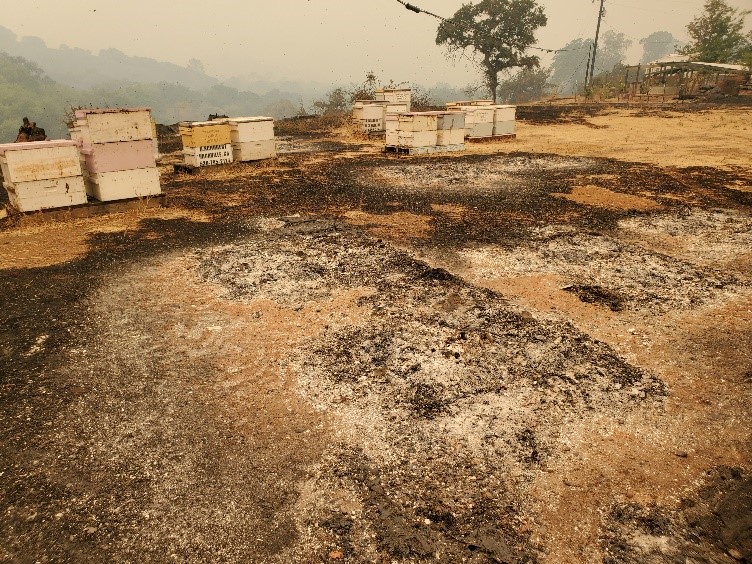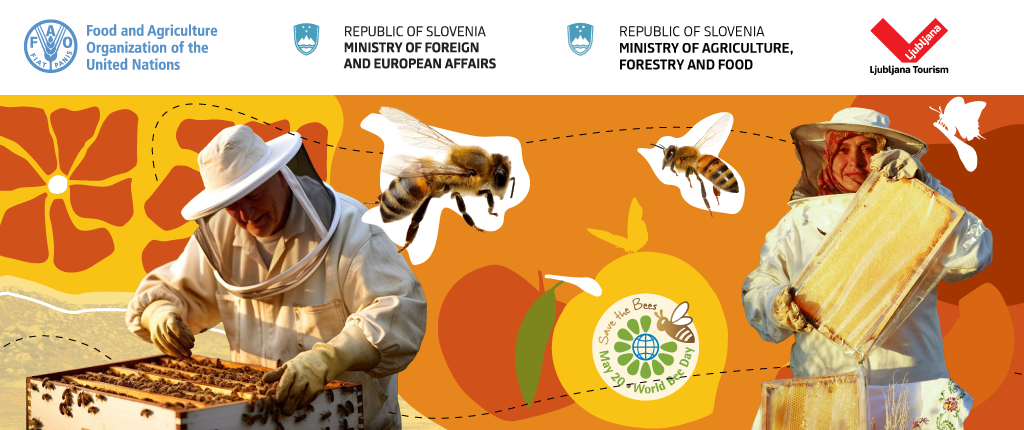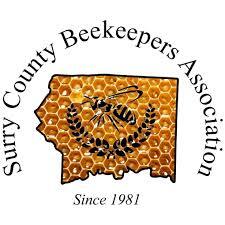It’s heartbreaking. Beyond heartbreaking.
Caroline Yelle, 28, owner of Pope Canyon Queens (PCQ) at 8307 Quail Canyon Road Quail Canyon Road, Vacaville, lost her business when the lightning-sparked Hennessey Fire, part of the LNU Lightning Complex Fire, swept through rural Vacaville on Aug. 19 from Napa County.
The raging wall of flame “destroyed everything.”
She has nothing left but hope.
Pope Valley Queens is one of the nation’s few women-owned queen bee breeder businesses. Yelle breeds bees for “a better tomorrow” and now “tomorrow” and “better” are almost singed from her vocabulary.
She lost 500 hives.
Her mentor, best friend and business partner Rick Schubert (who recently sold his business, Bee Happy Apiary, Vacaville), lost everything in the Hennessey Fire, including his newly remodeled home at 8307 Quail Canyon Road–and where the PCQ office was.
“I bought the company in 2017 from my mentor,” said Yelle, who began working there in 2012. “This year, 2020 is my seventh year in producing queens.”
“I was studying to be a lawyer in Canada,” she related. “After I got my degree, I decided to move here and left everything behind to follow my dream with the bees and helping them.”
Veteran beekeeper Schubert, who has kept bees for some four decades, is well known in the bee industry and agricultural world. He helped her settle in California and build the company, offering contacts and expertise. “Rick had just remodeled his house and that (the fire) happened,” Yelle said. “He lost everything.” Schubert’s only surviving bees are the 100 hives he keeps in Dixon.
“Basically after selling Bee Happy, he invested in my company, Pope Canyon Queens,” she said. “We lost everything together on different levels.”
We Lost the Farm
“We (Rick Schubert and her) lost the farm, the house, the garage, the bees,” Yelle said. “We have the majority of our bees on another property up in Pope Canyon Valley that also burned. We lost around 500 hives or $100,000 in livestock–minimum–that is not covered…and another $100,000 of benefits out of these hives. We are back to ground zero.”
“I’ve been working for seven years to get where I was,” she said. “I moved here (from Canada) and left everything behind to reach that goal, and have been working on selecting better genes to help to save the bees for feeding the nation. The Hennessey Fire destroyed EVERYTHING we owned.”
Yelle mainly breeds Carniolans, Apis mellifera carnica, a subspecies of the western honey bee and “a hybrid that we selected in Canada and we reproduce here in California for stronger genes.”
“The Canadian beekeeping industry needs tons of early queens in the spring,” she said. “We decided seven years ago to bring our northern and robust queen bee genetics, selected over more than 20 years, to produce here.” She has an isolated mating station in Napa Valley (Pope Canyon Valley).
“Our goal was not to compete with the big queen guys that already export massive amount of queens but try to increase the level of quality standard into the queen importation issue in Canada and the United States,” Yelle said. Over the years, they reached their goal of quality standard.
“However,” she said, “we are still working to improve our genetics and to expand our production year after year.”
Bee Source published this about the business in 2017: “Pope Canyon Queens LLC (PCQ) want and choose to be at the forefront breeding genetics to help bee populations to better defend themselves against mites, viruses, bacteria, pollination and commercial beekeeping stresses, pollution, depleting floral diversity and ever changing ecosystems. By confronting these challenges head on, PCQ will come to represent a turning point in the strengthening of bee populations. Its ‘raison d’etre’ is rooted in the urgency of grafting solid apicultural know-how onto strong genetics to meet today’s challenge of breeding a better tomorrow.”
—
Kathy Keatley Garvey
UC Davis Department of Entomology and Nematology
________________________________________________________________________________










